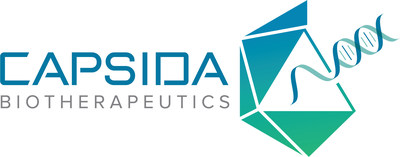Next-generation gene therapy demonstrates best-in-class potential with majority of neurons transduced in substantia nigra and high levels of GCase supplementation after single IV infusion
Broad GCase elevation achieved in NHPs, while significantly detargeting the liver compared with AAV9, with no clinical pathology, immunogenicity, or histopathology findings, including in DRGs
Wholly owned program on track for clinical entry in the first half of 2025
THOUSAND OAKS, Calif., May 10, 2024 /PRNewswire/ — Capsida Biotherapeutics (“Capsida”) today announced new preclinical data that demonstrate the potential of its next-generation intravenously (IV) administered gene therapy candidate, CAP-003, to safely and effectively treat Parkinson’s disease (PD) associated with GBA mutations (PD-GBA). Collectively, the findings strongly support the best-in-class profile of CAP-003 and Capsida’s plans to advance the therapy into clinical trials in the first half of 2025.
Mutations in GBA, the gene expressing the GCase enzyme, are the most common genetic risk factor for PD. Other treatments for PD-GBA have been limited by their inability to cross the blood-brain barrier and supplement GCase enzyme activity in sufficient quantities to impact the disease. In an attempt to overcome these challenges, they have utilized invasive direct brain or cerebrospinal fluid administration, with limited results, but significant burden for patients.
Capsida’s wholly owned novel gene therapy offers the potential to supplement the GCase enzyme with a single IV infusion, enabling long-term disease modification and substantially slowing disease progression.
In non-human primates (NHPs), CAP-003 transduced the majority of neurons, including critical sub-cortical regions, resulting in GCase enzyme activity levels that exceed the threshold anticipated to restore GCase function in patients with PD-GBA. Importantly, CAP-003 also demonstrated significant liver detargeting compared with AAV9 with no clinical pathology, immunogenicity, or histopathology findings, including in dorsal root ganglia (DRGs).
These data will be featured in an oral presentation today at the American Society of Gene & Cell Therapy (ASGCT) 2024 Annual Meeting, taking place May 7-11, 2024 in Baltimore, MD at the Baltimore Convention Center and virtually. Nicholas Flytzanis, Ph.D., Capsida’s co-founder and Chief Research and Innovation Officer, will deliver the oral presentation titled, “Systemic AAV Gene Therapy with CNS-Targeted Engineered Capsids Achieves Significant GCase Activity Increases in the Primate Brain to Support the Potential Treatment of GBA-PD,” at 3:00-3:15 PM ET as part of the Neurologic Diseases III Session (abstract 274).
“Our novel wholly owned PD-GBA gene therapy demonstrates the potential to provide long-term significant decrease in disease progression safely with a single IV infusion,” said Capsida CEO Peter Anastasiou. “We look forward to advancing this best-in-class program into clinical development in the first half of 2025, so that we can bring this important treatment option to people suffering from this devastating disease.”
About Parkinson’s Disease Associated with GBA Mutations
Parkinson’s disease (PD) is the second most common neurodegenerative disorder, with an estimated prevalence of more than 10 million adults worldwide and nearly one million in the United States. Current evidence suggests approximately up to 15% of people with PD have GBA mutations, making this the most common genetic risk factor for PD. Mutations in GBA (i.e., the gene expressing the GCase enzyme) in people with symptomatic PD-GBA result in a decrease in GCase activity and lysosomal dysfunction. Currently, there are no approved disease-modifying treatments for any form of PD, including PD-GBA.
About CAP-003: Capsida’s Program for Parkinson’s Disease Associated with GBA Mutations
Capsida is developing a next-generation gene therapy with best-in-class potential, CAP-003, for the treatment of Parkinson’s disease (PD) associated with GBA mutations (PD-GBA). Capsida’s wholly owned gene therapy offers the potential to supplement GCase enzyme with a single intravenous infusion, enabling long-term disease modification and substantially slowing disease progression with limited treatment burden. CAP-003 is currently in IND-enabling studies and is expected to enter the clinic in the first half of 2025.
About Capsida Biotherapeutics
Capsida Biotherapeutics is a fully integrated gene therapy company with a central nervous system (CNS) pipeline consisting of disease modifying and potentially curative treatments for rare and more common diseases across all ages. Capsida’s intravenously (IV) administered gene therapies utilize proprietary engineered capsids that enable high transduction levels to desired tissues and cells, while limiting tropism to non-target organs, such as the liver. Capsida has three wholly owned programs, including potential best-in-class treatments for genetic epilepsy due to STXBP1 mutations and Parkinson’s disease associated with GBA mutations (PD-GBA), both of which are in IND-enabling studies. In addition to its wholly owned programs, the Company has validating CNS partnerships with AbbVie, Lilly, CRISPR Therapeutics, and the AbbVie partnership was expanded to include ophthalmology disorders. Capsida was founded in 2019 by lead investors Versant Ventures and Westlake Village BioPartners and originated from groundbreaking research in the laboratory of Viviana Gradinaru, Ph.D., a neuroscience professor at Caltech. Visit us at www.capsida.com.
![]() View original content to download multimedia:https://www.prnewswire.com/news-releases/capsida-biotherapeutics-to-present-preclinical-data-for-parkinsons-disease-associated-with-gba-mutations-showing-high-levels-of-gcase-enzyme-supplementation-following-iv-administration-302137178.html
View original content to download multimedia:https://www.prnewswire.com/news-releases/capsida-biotherapeutics-to-present-preclinical-data-for-parkinsons-disease-associated-with-gba-mutations-showing-high-levels-of-gcase-enzyme-supplementation-following-iv-administration-302137178.html
SOURCE Capsida Biotherapeutics

Featured image: Megapixl © Infomages



